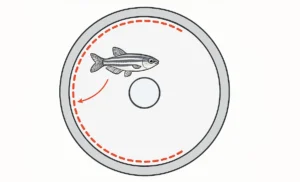

The new research about obesity comes from Dartmouth’s and Dartmouth-Hitchcock’s Norris Cotton Cancer Center. Researchers working on this task are part of the laboratory that is led by Craig Tomlinson, Ph.D. Their findings are available in the International Journal of Obesity.
Obesity is a global health problem that is known to cause several types of cancer. Among them are colon, breast, and pancreatic cancer. Because of this many researchers want to find a way to lessen the negative effects or to cure it completely.
Most cells have the AHR and it plays a role in the regulation of metabolic processes in the body. However, previous research also shows that this receptor plays a key role in the metabolism of fat. Building on this knowledge, Tomlinson and his team discovered that blocking this receptor inhibits certain cells’ ability for fat storage. That is, liver and fat cells lose the genes that play a role in the synthesis and storage of fat.
For the purpose of this research, scientists use mice as the main subject of the experiment. Besides the mice, they also use an AHR blocking drug known as NF. Furthermore, the research subjects were split into three separate groups.
One group of mice was on a low-fat diet and they were the control group. The second group was on a special Western diet and they were given no drugs. Lastly, the third group was on the Western diet and it was given NF during the trial.
However, the second and third groups were held on a high-fat diet until they got obese. After one-half of the obese mice got NF and the other did not. Both groups were kept on a high-fat diet as the medication was given to one-half of them.
Upon completion of the trial, researchers found that the low-fat group and the obese group with NF had the same results. Not only that, but the mice that were on the medication show no adverse effects. Because of such findings, the researchers are optimistic about the future of NF as a potential drug for curing obesity.
New Research May Reduce Patient Eligibility Criteria for Weight-Loss Surgery
Longevity Biomarkers Found in Mice
https://www.eurekalert.org/pub_releases/2020-01/dmc-nmm011320.php

Monday – Friday
9 AM – 5 PM EST
DISCLAIMER: ConductScience and affiliate products are NOT designed for human consumption, testing, or clinical utilization. They are designed for pre-clinical utilization only. Customers purchasing apparatus for the purposes of scientific research or veterinary care affirm adherence to applicable regulatory bodies for the country in which their research or care is conducted.